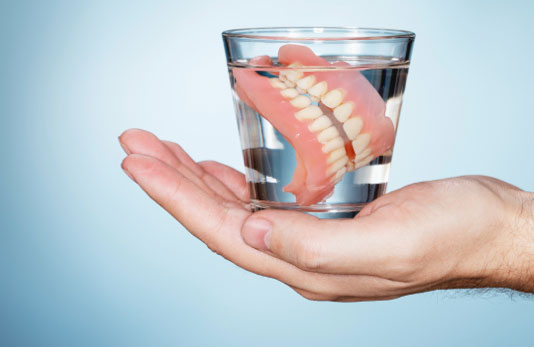Dental health care for Alzheimer's patients

Dental health problems in Alzheimer’s patients can lead to pain, unmanageable behavior and the need for extensive dental treatment. Unfortunately, their dental needs are often overlooked.
- The patient’s mental health issues may result in unintentional dental neglect.
- Medications may cause chronic dry mouth, and the reduction in the healthy flow of saliva can lead to tooth decay.
- Patients and their families may lose contact with the patient’s dentist because they are focused on other health issues.
Good dental health can make eating and digesting food easier for an Alzheimer’s patient, which improves their overall quality of life. If you are a caregiver for someone suffering from Alzheimer’s, here are some tips and techniques to assist your loved one in maintaining good oral health.
- Brush his or her teeth twice a day. To make teeth cleaning easier, find a toothbrush that your loved one can manage and that is also easy for you to use if he or she needs assistance. A powered toothbrush may be a good choice, if your loved one doesn’t mind the vibrating sensation. If toothpaste makes the process more difficult, omit it. Ask your loved one’s dentist about a fluoride gel or rinse. Fluoride helps keep enamel strong.
- Floss once a day. A floss holder can make flossing easier for people who don’t have good finger dexterity. Special picks and sticks may be an adequate alternative if your loved one clenches his or her teeth. You can also ask the dentist about an anti-microbial solution to protect your loved one’s gums.
- Clean his or her mouth and dentures after every meal. Some patients with Alzheimer’s have difficulty swallowing completely. Have your loved one rinse after every meal to help clear away food particulates. You should also remove his or her dentures for cleaning after every meal. Be sure to use a toothbrush with soft bristles to gently brush the patient’s gums and the roof of the mouth.
- Visually inspect your loved one’s teeth and gums once a month. Ask his or her dentist if there are any trouble spots you should pay extra attention to. If your loved one’s gums bleed or appear swollen or red, he or she may have gum disease and will need to visit a dentist.
- Schedule regular dentist visits. You should maintain a current list of your loved one’s medications for dentists and other health care workers to easily reference. Book a dentist appointment immediately if your loved one has difficulty or pain while chewing or develops bad breath, which may be a sign of infection.
Last updated September 8, 2021
Related articles:
The oral health information on this website is intended for educational purposes only. Always consult a licensed dentist or other qualified health care professional for any questions concerning your oral health.


